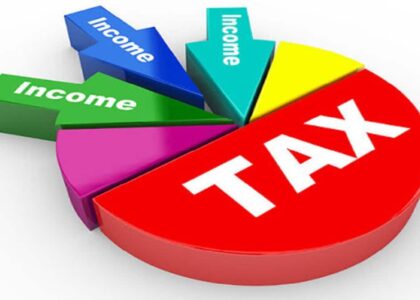September 2, 2023, Business Day reported that; The Federal Government of Nigeria is considering plans to review and reduce the total tax incentives, which amount to N6 trillion, offered to companies operating in the country.
Taiwo Oyedele, Chairman of the Presidential Tax Reform Committee, revealed plans for a comprehensive tax waiver review in line with the previous administration’s strategy.
The announcement came during the unveiling of an eight-point agenda in Abuja by Finance Minister Wale Edun, under the Bola Tinubu-led government’s efforts to revamp the challenging economy.
Previously, annual tax waivers averaged around N5 trillion, benefiting companies like Honeywell Flour Mills Nigeria Plc, Jigawa Rice Limited, Stallion Motors Limited, and more. This government initiative may impact these companies and others that have received various forms of tax waivers.
During the press briefing, Oyedele remarked, admitting that the current N6 trillion tax expenditure was unhealthy and needed to be reviewed.
“Incentives in and of themselves are not bad. But you will also agree with me that as time changes, you need to also review what you have done for years.”
“When you don’t look at your incentive regime, it can get to a point where it becomes a distortion for economic growth because some people benefit and others don’t, but they operate in the same sector, so they cannot compete. You also have to think about it from the point of view of cost benefits.
“As a country, if we are giving away N1, we need to be able to convince ourselves that the benefit we are getting is more than N1. Otherwise, that is no longer an incentive for the economy but for some individuals.
“If you look at our tax expenditure reports over the past three to four years, on average, we are giving away around N6tn per annum. That is significant. What we have not been measuring enough is the benefit we are getting from that.
“But I can confirm to you that part of the mandates given to us by Mr. President is to look at the incentive regime in Nigeria so that we can, based on data and evidence, design what is appropriate for us as a country. In terms of what we want to drive, those incentives will be targeted, data-driven, and evidence-based, and in most cases, we have subset clauses so that they don’t last forever and we will only find out after losing so much money,” he said.
The tax specialist also mentioned that the government intends to eliminate discouraging elements from the country’s tax system.
Oyedele said, “We think that what is more pressing and even more important than giving incentives is removing disincentives. The good thing about removing disincentives is that it doesn’t cost the government money. It stimulates the economy and helps us create wealth and growth; this is inclusive.”
He pointed out that the country has a N20 trillion tax gap, and closing it through automation can increase government revenue. He also emphasised that when people are prosperous and businesses thrive, the government can naturally generate more revenue.
He noted, “We are looking at the impediments to doing business. Whether you are a small business, large business, multinational, or domestic, we want to be a destination for all investors.
“We want Nigerian companies and businesses to become global. You may even find that some of them can easily earn a lot of foreign exchange more than the amount of money we are making from crude oil. That is the aspiration for us.”





